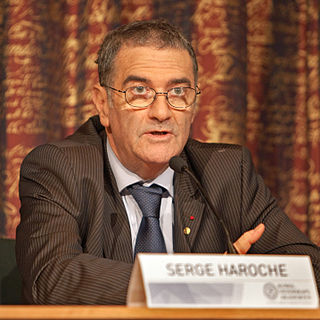A Quote by Matt Haig
You can't just stop technological progress. Even if one country stops researching artificial intelligence, some other countries will continue to do it. The real question is what to do with the technology. You can use exactly the same technology for very different social and political purposes. So I think people shouldn't be focused on the question of how to stop technological progress because this is impossible. Instead the question should be what kind of usage to make of the new technology. And here we still have quite a lot of power to influence the direction it's taking.
Quote Topics
Artificial
Artificial Intelligence
Because
Continue
Countries
Country
Different
Direction
Even
Exactly
Exactly The Same
Focused
How
Impossible
Influence
Instead
Intelligence
Just
Kind
Lot
Make
New
New Technology
One Country
Other
Other Countries
People
Political
Power
Progress
Purposes
Question
Quite
Quite A Lot
Real
Researching
Same
Should
Social
Some
Still
Stop
Stops
Taking
Technological
Technological Progress
Technology
Think
Usage
Use
Very
Will
Related Quotes
In the end, the fate of children depends on our ability to use technology constructively and carefully. The connection of childrenand technology is not simply a matter of seat belts, safe toys, safe air, water and food, additive-free baby foods, or improved television programming. These are all important issues, but to stop here is to forget that today's children will soon be adults. Technological decisions made today will determine, perhaps irrevocably, the kind of physical and social world we bequeath them and the kind of people they become.
We have to do away with a false and misleading dualism, one which abstracts man on the one hand and technology on the other, as if the two were quite separate kinds of realities.... Man is by nature a technological animal; to be human is to be technological.... When we speak of technology, this is another way of speaking about man himself in one of his manifestations.
People always think of technology as something having silicon in it. But a pencil is technology. Any language is technology. Technology is a tool we use to accomplish a particular task and when one talks about appropriate technology in developing countries, appropriate may mean anything from fire to solar electricity.
We ought to be keeping in mind that the technology is not just hardware and machinery, it is also software. So you can think of languages of the technology and writing of the technology and the social justice of the technology in what social justice does is reduce impacts on the Earth because the most impact is from the poorest and richest people.
The great question for our time is, how to make sure that the continuing scientific revolution brings benefits to everybody rather than widening the gap between rich and poor. To lift up poor countries, and poor people in rich countries, from poverty, to give them a chance of a decent life, technology is not enough. Technology must be guided and driven by ethics if it is to do more than provide new toys for the rich.






































